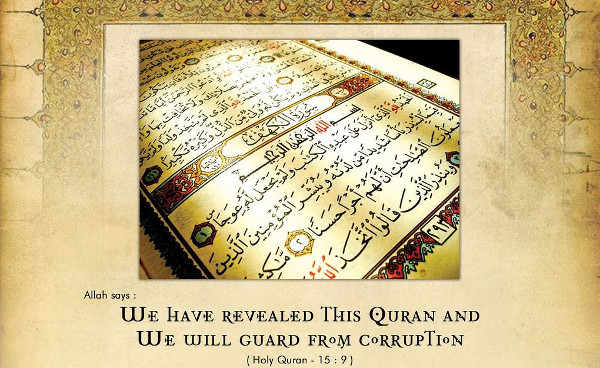
Introduction:
One of the most important facts of Islam is that the Qur’an is the unchanged word of Allah, perfectly preserved since it was revealed over 1,400 years ago.Many non-Muslims, and even some Muslims, wonder: Can we really be sure that the Qur’an we have today is the same as what was revealed to Prophet Muhammad ﷺ?This article will explore the Islamic evidence, historical facts, and scholarly consensus on the preservation of the Qur’an.
The Qur’an’s Own Claim:
The Qur’an explicitly declares that Allah Himself guarantees its preservation: “Indeed, it is We who sent down the Reminder (the Qur’an), and indeed, We will surely guard it.”— Surah Al-Ḥijr (15:9)This verse is both a divine promise and a fulfilled prophecy.For over fourteen centuries, the Qur’an has remained intact — word for word, letter for letter — despite the rise and fall of empires, languages, and cultures.
How the Qur’an Was Preserved:
1. Through Memorization (Hifz)From the time of Prophet Muhammad ﷺ, thousands of his companions memorized the Qur’an completely.They were known as ḥuffāẓ (guardians of the Qur’an). The Prophet ﷺ said:“The best among you are those who learn the Qur’an and teach it.”(Sahih al-Bukhari, 5027)To this day, millions of Muslims around the world — from Nigeria to Indonesia — memorize the Qur’an entirely, often from a young age.This oral preservation is unique to the Qur’an; no other scripture in history has been memorized so widely and precisely.
2. Through Written PreservationDuring the Prophet’s lifetime:The Qur’an was written down on parchments, bones, and leaves by appointed scribes.He personally reviewed the recitations of the Qur’an each Ramadan with the angel Jibrīl (Gabriel).After his death, under the Caliph Abu Bakr (may Allah be pleased with him), the written materials and memorized recitations were compiled into a single copy, supervised by the companions who had memorized the entire Qur’an.Later, during Caliph Uthman’s era, standard copies were produced and distributed to major Muslim regions to preserve one unified reading, eliminating any regional differences in dialect or pronunciation.These copies, known as the “Mushaf of Uthman,” became the foundation of all Qur’anic manuscripts today.
3. Through Continuous Recitation (Tawātur)The Qur’an has been transmitted generation after generation through a process called tawātur, meaning:> “A transmission by so many people in every generation that it is impossible for them to have conspired upon a lie.”This chain of reciters connects every modern Qur’an reader directly back to the Prophet Muhammad ﷺ.
What Scholars and Historians SayImam Al-Nawawi (d. 676 AH): “The Qur’an is preserved by Allah from any alteration, addition, or omission.”(Al-Tibyan fi Adab Hamalat al-Qur’an) Orientalist scholar Arthur Jeffery, though critical of Islam, admitted: “The Qur’an as we have it today is practically identical with what was in circulation in the Prophet’s lifetime. “Even non-Muslim historians recognize the Qur’an’s textual stability, especially compared to other ancient scriptures.
Manuscript Evidence:
Early Qur’anic manuscripts from the 7th century CE, such as: The Topkapi Mushaf (Turkey)The Samarkand Mushaf (Uzbekistan)The Birmingham Manuscript (UK)—all confirm the same text found in the Qur’an recited by Muslims today. When compared letter-by-letter, these manuscripts match the standard Uthmanic Qur’an, differing only in spelling conventions and minor diacritical marks — not in words or meanings.
Addressing Common Misconceptions:
- There are different versions of Qur’an: There is only one Qur’an, but multiple authentic recitations (Qirā’āt) — each taught by the Prophet ﷺ and passed through sound chains of narration.These are not different versions but different accepted modes of pronunciation, much like different accents in reciting the same text.
- Early Muslims disagreed about the Qur’an: Minor differences in dialect, and pronunciation existed, but the content was the same. Caliph Uthman’s compilation standardized the Qur’an without changing any revelation.
- The Qur’an was written long after the Prophet: No — it was written and memorized during his lifetime.Every verse was confirmed by him before it was recited publicly.The companions cross-checked both written and memorized versions for accuracy.
Why This Preservation Matters:
1. It proves the truthfulness of Allah’s promise (Qur’an 15:9).
2. It ensures that Islam’s guidance remains unaltered and reliable for all generations.
3. It gives Muslims a direct link to the words of Allah, not human authors or translations.
Conclusion:
The Qur’an is not just another ancient book — it is the living word of Allah, perfectly preserved in memory, writing, and recitation. Its preservation is: Divinely promised, Historically proven, and Universally witnessed among Muslims across centuries. No other scripture can make — or prove — such a claim. “This is the Book about which there is no doubt, a guidance for those conscious of Allah.”— Surah Al-Baqarah (2:2)
References:
1. Qur’an 15:9, 2:2, 22:38
2. Sahih al-Bukhari, Hadith 5027
3. Al-Tibyan fi Adab Hamalat al-Qur’an — Imam al-Nawawi
4. The Preservation of the Qur’an, Dr. Mustafa al-Azami
5. The History of the Qur’anic Text, M.M. al-Azami
6. Birmingham Qur’an Manuscript Study, University of Birmingham

